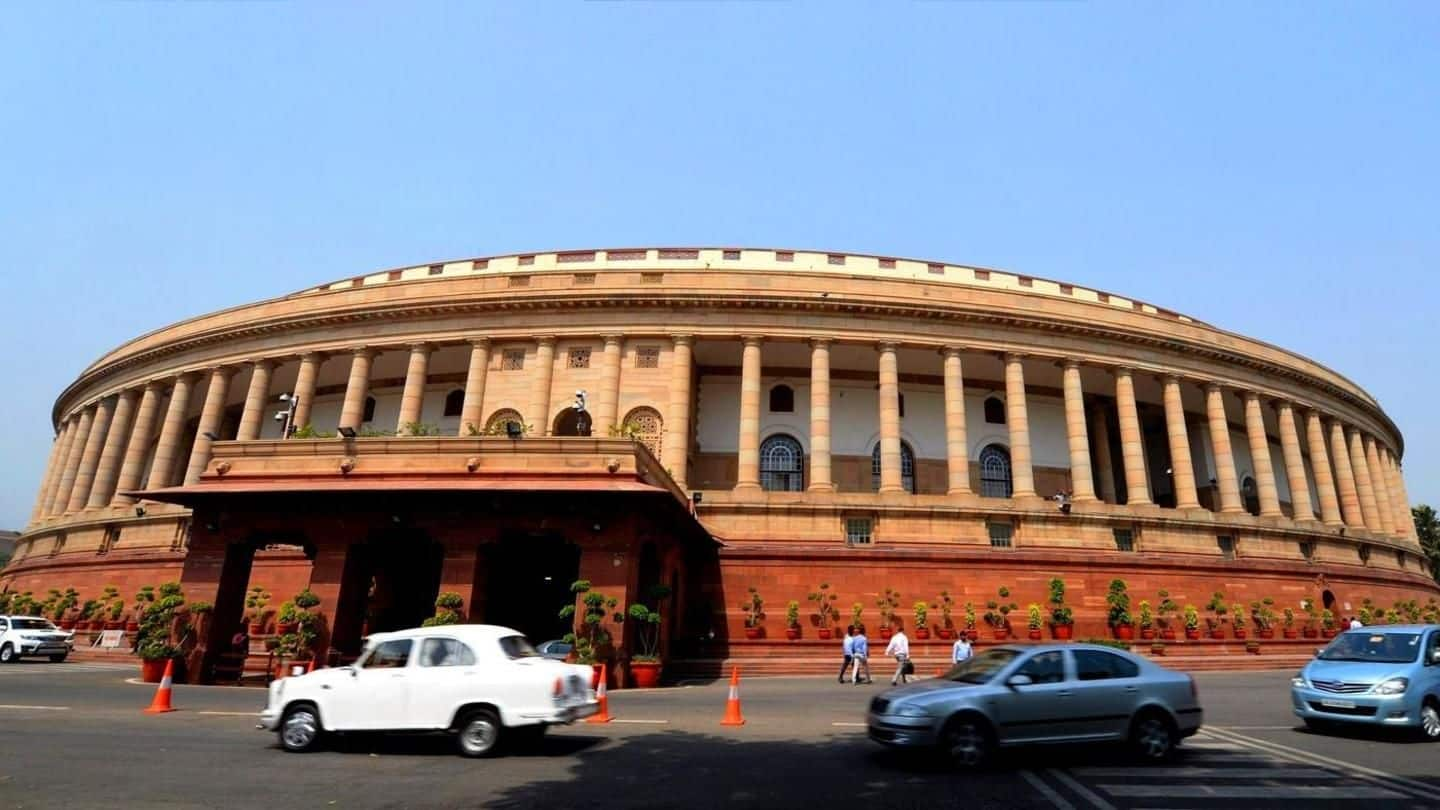
Budget session: Amid paper-tearing and protests, bills passed without discussion
What's the story
With protests rocking the Parliament's budget session, productivity has hit an all-time low. For the ninth consecutive day, Opposition members continued to protest and tore papers to register their dissatisfaction. Amid the din, the government managed to pass two bills without debate in Lok Sabha. Earlier, the government also passed the Finance Bill 2018-19 and Appropriation Bills in a similar manner. Here's more.
Proceedings
How did business in the Lok Sabha proceed?
As soon as the House met and Speaker Sumitra Mahajan took up the Question Hour, proceedings were paralyzed by Opposition parties trooping into the Well with placards. The speaker realized that a discussion was improbable; so, she proceeded with passage of the bills. Parliamentary affairs minister Ananth Kumar called the Parliament "a maha panchayat" and urged MPs to allow the House to function.
Details
What do the two bills relate to?
Following are the 2 bills which were passed: First, the Payment of Gratuity (Amendment) Bill removes the current ceiling of Rs. 10L and allows the Centre to notify the ceiling from time to time. It also allows government to decide the maternity leave period as part of "continuous service." Second, the Specific Relief (Amendment) Bill allows a party to seek damages from another party if a business contract is breached.
Protests
What were the Opposition members protesting about?
Even as the bills were passed by a mere voice-vote without debate, Opposition continued its protest. Congress-Trinamool continued protesting the Nirav Modi-PNB scam. TRS sought to increase reservation quota and AIADMK demanded setting up the Cauvery management board. TDP-YRS Congress continued their "Special category status for Andhra" protest. The House was first adjourned till 12 noon, followed by an adjournment till tomorrow.
Do you know?
Meanwhile, how has the Parliament's productivity been this budget session?
As per PRS Legislative Research, in the first week of the second half of the budget session, Rajya Sabha functioned for 7% and Lok Sabha just 3% of its scheduled time. Shockingly, RS saw only 25 mins and LS 12 mins of deliberations.